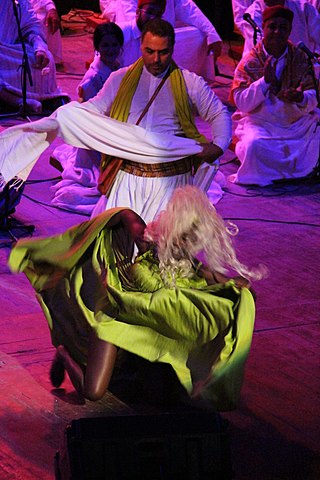
All the silenced, all the neglected, all the invisible
This is not utopia. This is a borderland. This is south of the borderland.
This is not the apocalypse; this is calypso.
This is a joyful dancing rebellion. This is duende. This is a revolution of loose bones.
This is a full-bellied brawl between resilient hips and gravity.
Of those who are overrun, of those who look to the moon for light, of those without
a moon, of those without,
this dance is yours and mine, this dance is irrevocable, this dance is fanning flames,
this dance is eating flames.
Let’s rise to say, “enough is enough.” Let’s rise to say, “I exist.” Let’s rise to say, “Here.”
Let’s rise to say, “I hold the sun between my burnt teeth.”
* Italicized text is translated from Ana Tijoux’s “Somos Sur (featuring Shadia Mansour).” This poem is in response to a video of a belly-dancing routine to the song “Somos Sur” by Gio of Zombie Bazaar Panza Fusion.
Mahmoud
I.
your throne is vacant
was margin is mystic
like Rumi, your voice,
a ruin of rumination
a remnant of Jericho
walls, viscera of olives
hard pit of wind.
The thrown: stone of
one who builds up
blank space takes this
road blocked road won’t
come back empty handed.
II.
How dare the night
you die under Cancer,
the sky deserted, we
avid constellations crowd around
fonts of your celestial,
your sounds like cartography.
This space you held,
you hewed them in
held lungs, your hands
burning. Something like birth
rises like the moon
like your stones. The
way the heavens grow
heavy again with stardust.
* Italicized text is from Philip Metres’ “Marginalia for Mahmoud Darwish.”
A Conversation with The Prophet
I.
Your joy is your sorrow unmasked. And the
selfsame well from which your laughter rises
was oftentimes filled with your tears. And when
my willingness to sit beside your tears
turns into oud strings and a song about
strangers linked by old Cairo and Turkish
coffee, we exchange our names and shake hands
dehydrated by hot sun beams on sand.
Beneath this desert a seabed sleeps un-
abandoned. A kiss on each weak cheek, yes,
my skin is the same shade as yours and you
have lived half longer. Our hearts have slowed some
to a rested rate of moving along
to a tabla drum tapped on a distant
dune to the tune of a new lullaby.
II.
And when you have reached the mountain top, then
you shall begin to climb. And when the earth
shall claim your limbs, then shall you truly dance.
And when the lights go out at night, you will
see millions of attention starved suns dot
the death black sky. And when you sleep outside
in early august, you will watch comets
cut across the stratosphere, a space you
can’t inhabit. And when you try to trans-
late pre-Islamic poetry at twi-
light, unfamiliar words fill in for the
dark. The language of the afterlife is
silt on the surface of an oasis
where you sand dance the dabke alone
in a dead fire’s final glow. And I cry.
* Italicized text is from Khalil Gibran’s The Prophet.
 Danielle Badra received her MFA in Poetry at George Mason University. While there, she was the poetry editor of So To Speak, a feminist literary and arts journal, and an intern for Split This Rock. Her poems have appeared in Outlook Springs, 45th Parallel, The California Journal of Poetics, and The Greensboro Review. Dialogue with the Dead (Finishing Line Press, 2015) is her first chapbook, a collection of contrapuntal poems in dialogue with her deceased sister.
Danielle Badra received her MFA in Poetry at George Mason University. While there, she was the poetry editor of So To Speak, a feminist literary and arts journal, and an intern for Split This Rock. Her poems have appeared in Outlook Springs, 45th Parallel, The California Journal of Poetics, and The Greensboro Review. Dialogue with the Dead (Finishing Line Press, 2015) is her first chapbook, a collection of contrapuntal poems in dialogue with her deceased sister.
Image by Zeinebtakouti – Own work, CC BY-SA 4.0, https://commons.wikimedia.org/w/index.php?curid=60699186